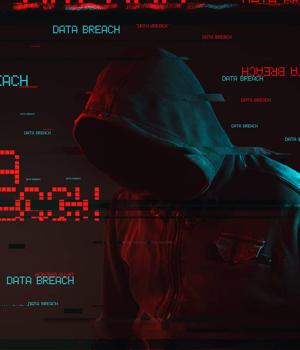Security News > 2000 > May > Philippines, like most other countries, lacks resources to fight cybercrime

Philippines, like most other countries, lacks resources to fight cybercrime By OLIVER TEVES, Associated Press MANILA, Philippines (May 9, 2000 5:38 p.m. EDT http://www.nandotimes.com) - Like many nations, the Philippines churns out plenty of computer programmers these days but is seriously handicapped in fighting cybercrime, as chagrined authorities discovered in pursuing suspects in the "ILOVEYOU" virus case. Federal agents were forced to delay a raid on an apartment where the virus is believed to have originated for days as prosecutors first searched for laws that could apply, then tried to persuade judges to issue a search warrant. Finally, on Monday, a judge agreed to issue a warrant under a 1998 law regulating the use of "access devices" such as credit cards or equipment to obtain money, goods or services. They arrested Reonel Ramones, a bank employee, but released him Tuesday because of insufficient evidence. National Bureau of Investigation agents who raided his apartment found neither a computer nor a modem. "This is a new type of crime and the law applicable is not so clear," said NBI director Federico Opinion, who admitted that his own office has no computers, and whose agency was assisted by the FBI in the so-called Love Bug case. Scores of nations, especially in the developing world, lack laws governing cyberspace crimes and are woefully short on the computer-savvy investigators and technology required to go after sophisticated hackers. "The scary thing about the Internet is that somebody with a computer in a jurisdiction where there are no cybercrime laws can get on and wreak havoc around the rest of the world," said Susan Brenner, a cybercrime expert at The University of Dayton Law School in Ohio. Thirty-seven countries now have statutes dealing with "unauthorized access" to computers and computer systems, according to a list compiled by Stein Schjolberg, a Norwegian judge active in computer justice issues. But the laws are anything but uniform and there are no international treaties governing cybercrime. The European Union released a draft treaty last week, said Brenner, adding that it would not be approved until next year at the earliest. In the meantime, the lack of global legal standards for combatting malicious hackers is "going to cause delays in cooperation, with investigators floundering around as to what they should try to do," said John F. Murphy, a Villanova University law professor who specializes in international terrorism. "The delay can be fatal because of the nature of technology," Murphy added. In the Philippines, legal experts predicted the Love Bug virus case would prompt lawmakers to finally pass legislation that would punish computer break-ins with a fine equal to the amount of damage caused plus a mandatory prison term of up to three years. As it is, a sponsor of that legislation, Sen. Ramon Magsaysay Jr., said the NBI was wrong to use the "access devices" law against Ramones "because they may be violating citizens' civil rights." Even with such laws, locating and successfully prosecuting cyber culprits "is like tracing vapor" because skilled hackers can make it difficult to establish their identities on the Internet, said Philippine law professor Josephine Victoria T. Yam. The Net's global nature can even frustrate law enforcement cooperation among countries that have cybercrime statutes because of their lack of uniformity. There is, for example, great potential for disputes regarding admissibility of electronic evidence, which is weighed differently in different countries. There are also disputes over which country should have jurisdiction over an offender - the hacker's home country or those of his victims. Take the case of the Love Bug virus, which struck millions of computers worldwide when it was unleashed Thursday, causing hundreds of millions of dollars in damage. "Is the crime the creating and setting loose of the thing or is the crime the damage committed and where?," posed Brenner, the U.S. cybercrime expert. "In that case we have millions of cases of damage." The United States has not said whether it would seek the extradition of the Love Bug virus authors. But if Washington were to do so, the lack of Philippine cybercrime law could be an impediment. Although the United States and the Philippines have an extradition treaty, Philippine law requires that laws exist in both countries recognizing a given offense. The United States could, however, still request - but not demand - that a suspect be turned over to U.S. courts, said Franklin Ebdalin, foreign assistant undersecretary for legal affairs. http://www.techserver.com/noframes/story/0,2294,500202236-500279767-501491560-0,00.html -- Patrick Oonk - PO1-6BONE - patrick () pine nl - www.pine.nl/~patrick Pine Internet - PAT31337-RIPE - PGP keyID BE7497F1 - XOIP 0208723350 Tel: +31-70-3111010 - Fax: +31-70-3111011 - http://security.nl PGP fingerprint A6 12 66 7F 22 84 1B E5 73 8C 99 F7 17 7B A3 98 Excuse of the day: _Rosin_ core solder? But... ISN is sponsored by SecurityFocus.com --- To unsubscribe email LISTSERV () SecurityFocus com with a message body of "SIGNOFF ISN".